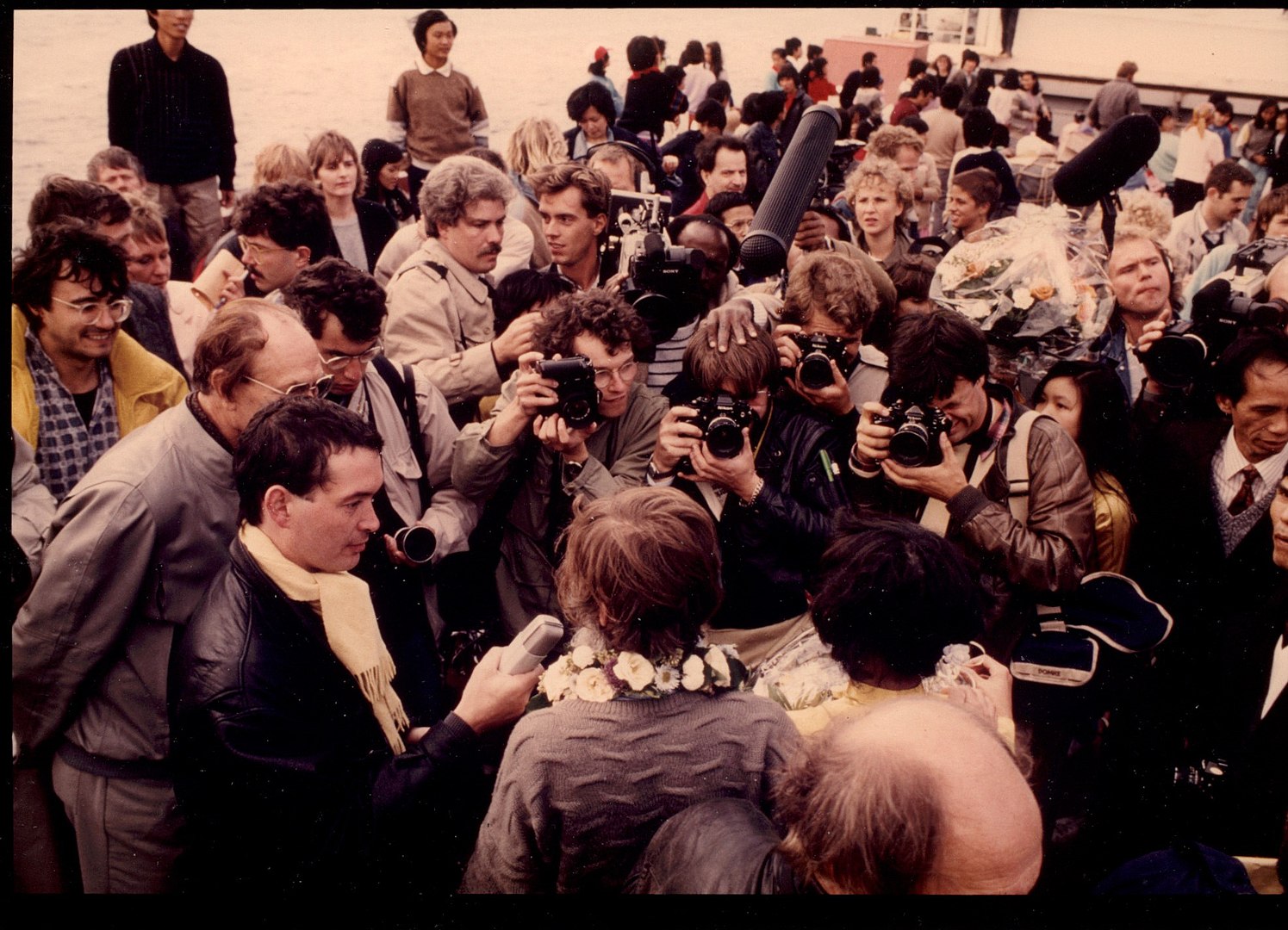Calm • Serenity
Why We All Need Quiet Days
For the last two centuries a cult has been spreading widely and rapidly around the world, seeking to dominate and control every moment of our lives; today it has hundreds of millions of adherents, including almost all the conspicuously successful individuals on the planet; nether a religious dogma nor a political creed, it is devoted instead to a single, striking ideal: busyness.

It insists that a good life – the only life worthy of a capable and intelligent person – is one of continuous activity and application; one must strive relentlessly to fulfill every ambition; every hour of the day and the evening must be filled with intense activity. A hero should be up at dawn, following the news on the Shanghai stock exchange; they should jet to Hamburg for a morning meeting (working intensely throughout the journey) and then squeeze in a visit to a seminal exhibition at the Galerie der Gegenwart at the Hamburger Kunsthalle; in the afternoon they are back at the head office for tough negotiations concerning an urban development project in Sao Paulo – though they take a quick break for a video chat with their five-year old child, who has just had their first violin lesson; in the early evening they drop in on a gala reception at the Opera House, to have a quick word with the finance minister who is also attending; then there’s dinner with a group of major investors, where they’re presenting their strategic overview of next year’s expansion in India; when they get home they field calls from Boston (medical technology) and Tokyo (intellectual property rights); then they sit up late in bed going over papers on tax efficiency and family trusts.
The glamour of their life is constantly being reinforced: there’s an admiring article about their business in one of the financial weeklies; luxury adverts are aimed at them; their name is on the wall of them museum, as a major benefactor. Their life is immensely interesting and the whole world, it seems, envies them.
Our own hectic days may not be quite as high-flying, but this is the direction in which they are aiming; if we haven’t arrived it’s because we haven’t tried hard enough; the only thing for it is to push ourselves harder and cram more into each day.
But instead of being blissfully satisfied with our hectic lives we feel permanently nervous and strained, though we are careful to conceal it as much as possible from others, and from ourselves. Our irritability is cast as rightful impatience with slackers and mediocrities; our frustration and disappointment is interpreted as a necessary spur to greater activity; our growing gloom and sadness, beneath our zestful demeanour, will – we tell ourselves – disappear when finally we get on top of everything we have to do and attain the level of success that will guarantee our happiness.
More dramatically, we find we are on the verge (or beyond the verge) of collapse. we fall ill or we suddenly snap and do something disastrous: we start screaming during a conference call; we get enraged with a lackadaisical junior colleague who then lodges a harassment claim; we have an affair and our partner finds out; we take drugs ‘to unwind’ or to keep up our level of intense activity – and then we find we’re addicted and increasingly unable to function.
Our cult of busyness demands that we take on more than we can properly cope with; it ignores or denies our actual fragility – and encourages us to ignore or deny it too – until we have a breakdown and want to lock ourselves away, smash our phones, lie on the floor and weep.
It’s moving to think, by contrast, of the attentive mother who settles her child down for an afternoon nap after an exciting morning. The child doesn’t know it’s worn out, but the mother is aware of the need for tranquility and rest. If the child had its way it would be zooming around the garden, going to another birthday party or watching a frenetic video – before having a tantrum. The maternal function, so to speak, is to calm the child’s days, when the child itself is unable or unwilling to recognise its own overwrought state. As adults, we need the maternal part of ourselves to step in and prescribe slower, quieter days and to rescue us from the oppressive ideal of the busy life, which is slowly destroying us.
But the motive for seeking a quieter life is not purely self-preservation. Simple days, when nothing much seems to be happening and when we haven’t apparently accomplished anything – days the busy person would consider dull and wasted – can be deeply fruitful.
As in the busy life, the perfect quiet day might also start early: from the window we watch the dawn slowly colouring the sky above the houses across the street and slowly fading. We spend part of the morning organising the linen cupboard: folding sheets, stacking blankets, ironing a few napkins and arranging them neatly. Maybe next time we’ll go through our wardrobe and weed out the clothes we haven’t worn for ages. We’re at last bring order and harmony to our domestic existence.
As we’re going about our simple tasks we can untangle our thoughts and feelings. When we’re proccupied we don’t properly notice the details of our emotional states or what’s going on at the back of our minds. Now we start to pay closer attention: why did we fall out with that friend last year? Was it, perhaps, that we never particularly liked each other anyway? What did we really feel in their company? Who, ideally, would we like to be friends with? And what is it about them that appeals to us?

In the afternoon we take a long walk alone. We pass an old brick wall we’d hardly noticed before – it’s been weathered by the sun and the rain and delicately spotted with yellow lichen: how long has it been there, what has happened to the people who built it? It was probably rather stark and raw originally – time has been kind to it.
We pause to look carefully at a tree; the branches look bare, but close up we can see the first, tiny tips of green starting to emerge from some of the brown buds. In the past we only ever noted the big changes, now we’re registering the beautiful, minute steps, accomplished day by day that take it from one season to another.
In our slow days we have the time, and the patience, to notice what seem, at first, like small sources of pleasure. And as we appreciate them, we realise how big and moving they really are – and how much we missed out on when, in our busier time, we tried to do everything.
After a light supper, we lie soaking in a hot, deep bath. As the body relaxes and the mind is soothed, we meditate on what we really want to do with our lives. In place of the conventional aspirations which used to drive us we become sensitive to our own authentic ambitions. It could be nice to take up drawing; how might our relationship with our mother be improved; what kind of work gives us most satisfaction; what kind of relationship might be possible that could be really fruitful? We start to dig around in the neglected territory of our needs and longings and begin to think through how they could realistically evolve.
We turn in early, so we’ll be fresh in the morning. In the minutes before we sleep we go over the memories of a trip from years ago: recapturing the charming manners of a particular waiter or the pleasure of opening the shutters in the morning and looking down a narrow street towards the sea; we’re planning to stay quietly put for a while but we don’t need to go anywhere – our lives are rich and large already.
Latest Articles

Relationships
What Role Do You Play in Your Relationship?

Self-Knowledge
Self-Archaeology

Self-Knowledge
On Projection

Self-Knowledge
The Upsides of Being Ill

Self-Knowledge
Why Parents Bully Their Children

Calm
On Being ‘Triggered’

Calm
Stop Worrying About Your Reputation

Work
Do We Need to Read the News?

Work

























